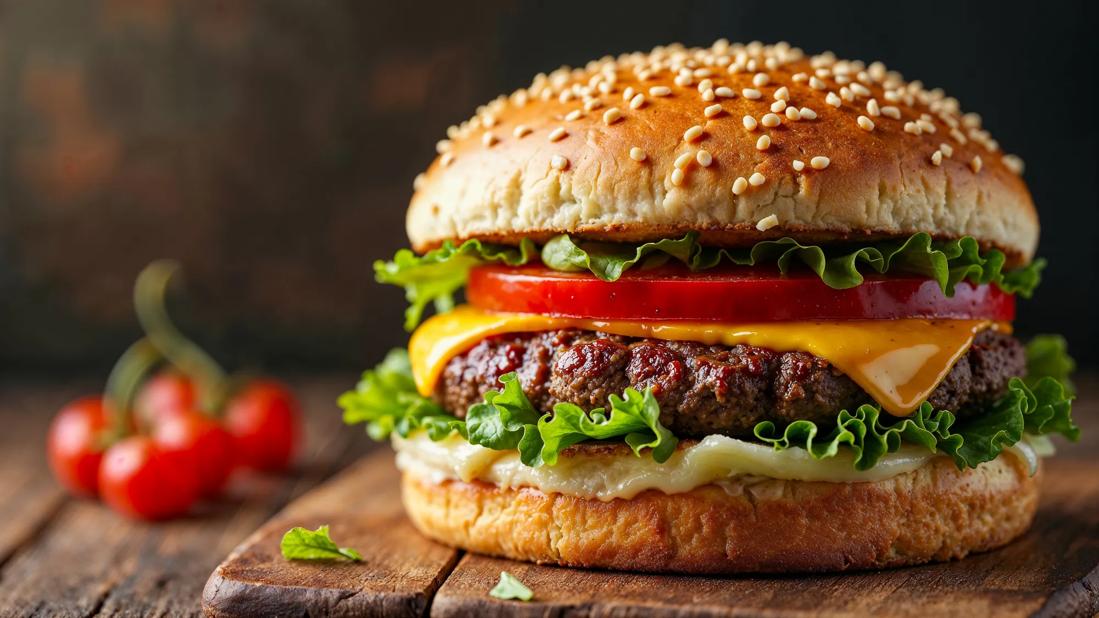High amounts of cholesterol and saturated fat in red meat may be linked to heart disease

Is red meat bad for your heart? For decades, scientific studies have shown a connection between eating red meat — like beef, pork, veal and lamb — and getting heart disease. That’s why the American Heart Association encourages limiting the amount of red meat you eat.
Advertisement
Cleveland Clinic is a non-profit academic medical center. Advertising on our site helps support our mission. We do not endorse non-Cleveland Clinic products or services. Policy
Cardiologist Dennis Bruemmer, MD, PhD, explains the connection between red meat and heart disease.
Like a lot of animal products, red meat can be high in salt, fat and cholesterol. And while it may be a staple of American cuisine, it’s one that’s probably best experienced in moderation.
“There have been innumerable studies that show a connection between eating red meat, getting heart disease and dying from heart disease,” says Dr. Bruemmer. “It’s remarkably consistent.”
Exactly how red meat contributes to heart disease is debated. There are likely multiple reasons, including:
There’s no official recommendation on how much red meat is OK to eat.
Advertisement
But consider this: The amount of red meat consumption that’s associated with an increased risk for cardiovascular disease is rather small, reports Dr. Bruemmer. On average, that’s 100 grams or 3.5 ounces per day for unprocessed red meat and 50 grams or 1.7 ounces for processed red meat.
Increased red meat consumption is also associated with a higher risk for Type 2 diabetes and cancer, and consuming more than three-and-a-half servings of red meat per week is associated with an increased overall death rate. For example, a serving of meat is about 3 ounces, which is about the size of a deck of cards, and the average New York strip steak is about 10 to 14 ounces.
So, the American Heart Association encourages people to prioritize plant-based proteins, seafood and lean meats, and limit high-fat animal products, including red meat.
And it can be especially worrisome if you already have high cholesterol, high blood pressure or a family history of heart disease.
If you have any heart disease risk factors, talk to your doctor, have your nutrition evaluated and ask for a lipid panel to get a better picture of your heart health.
If you’re going to have red meat as part of your meal, here are some tips:
What about plant-based meat alternatives? There are some benefits to such a switch, but consuming them should still be done in moderation. For example, plant-based burgers achieve their beef-like taste thanks to a high degree of ultra-processed ingredients and hidden carbohydrates and salts.
“They can still be high in calories, salt and fat,” warns Dr. Bruemmer.
According to most scientific studies, people who eat more red meat have a higher risk of heart disease.
Advertisement
So, what can you do? Eat a well-balanced diet, limit how much red meat you eat and think about the types of red meat you eat.
“Being mindful of how often you’re eating red meat can help improve your overall heart health,” concludes Dr. Bruemmer.
Advertisement

Sign up for our Health Essentials emails for expert guidance on nutrition, fitness, sleep, skin care and more.
Learn more about our editorial process.
Advertisement

The tropical fruit is a good source of antioxidants and vitamin C

The leaves and pods from this tree are rich in essential nutrients

This starchy root vegetable is a staple in many global cuisines — but it has to be prepared correctly, or it can cause serious concerns

These delicate green sprouts can give you an extra dose of vitamin K and other nutrients — but they’re not safe for everyone

Edamame, lentils and chicken breast are good sources of protein

Eating this root vegetable can help support your eye, heart and brain health

The flavorful herb is full of antioxidants that may help regulate blood sugar

This fermented cabbage is full of probiotics and fiber, and can help your gut, heart and brain health

Even small moments of time outdoors can help reduce stress, boost mood and restore a sense of calm

A correct prescription helps your eyes see clearly — but as natural changes occur, you may need stronger or different eyeglasses

Both are medical emergencies, but they are very distinct events with different causes